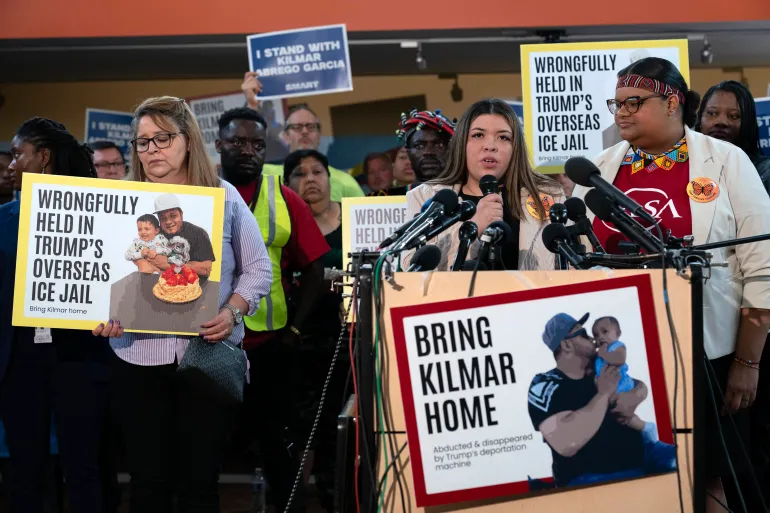A recent White House meeting between U.S. President Donald Trump and El Salvador’s President Nayib Bukele has stirred controversy over the wrongful deportation of Kilmar Armando Abrego Garcia—a man previously granted protection from removal by U.S. immigration courts.
While both leaders claimed Abrego Garcia would not be returned to the U.S., this contradicts a recent U.S. Supreme Court ruling that requires the Trump administration to facilitate his return.
Who Is Kilmar Abrego Garcia and Why Was He Deported?
On March 15, Abrego Garcia was deported to CECOT, a high-security Salvadoran mega-prison, as part of a broader Trump-era deportation effort targeting alleged gang members from Central America.
However, Abrego Garcia had received a form of legal protection called withholding of removal—a status that legally barred his deportation to El Salvador. The U.S. Justice Department later admitted that his deportation was an “oversight” and “an administrative error.”
Was Abrego Garcia Proven to Be an MS-13 Member?
At the Oval Office, U.S. Attorney General Pam Bondi claimed: “In 2019, two courts, an immigration court and an appellate immigration court, ruled that (Abrego Garcia) was a member of MS-13.”
But this needs context.
Abrego Garcia was arrested in 2019 outside a Home Depot in Maryland, based on a police informant’s claim that he was affiliated with MS-13. Immigration judges denied him bond, referencing the informant and a Gang Field Interview Sheet.
Yet, bond denials do not equate to formal rulings of gang membership. “The immigration judge is only taking at face value any evidence that the government provides,” said David Bier, associate director of immigration studies at the Cato Institute. “It is not assessing its underlying validity at that stage.”
Moreover, the Department of Homeland Security later granted Abrego Garcia protection, which, according to U.S. law, means they determined he was not “a danger to the security of the United States.”
Is Abrego Garcia a ‘Terrorist’?
When asked if El Salvador would return Abrego Garcia, President Bukele responded: doing so would be akin to “smuggling a terrorist into the United States.”
Yet, there is no evidence that Abrego Garcia is a terrorist. Reichlin-Melnick pointed out that he’s being held in El Salvador at the U.S. government’s request, not due to any crime committed there.
Bukele could legally release Abrego Garcia, and the U.S. could issue him humanitarian parole to comply with the court order for his return.






